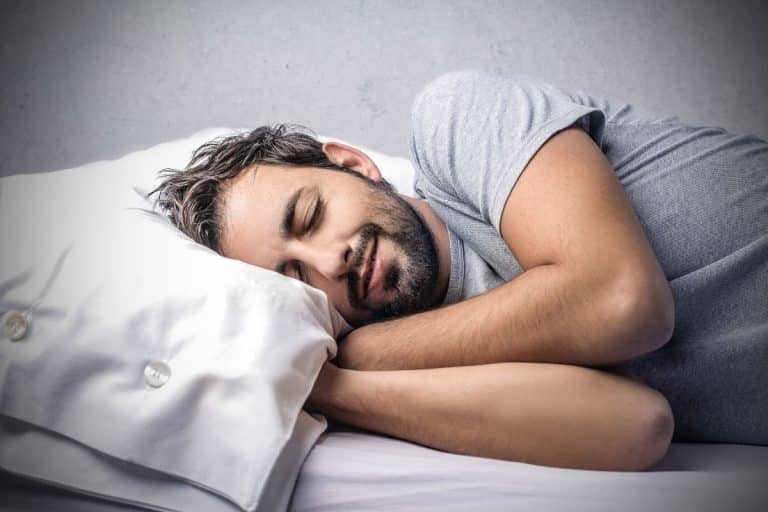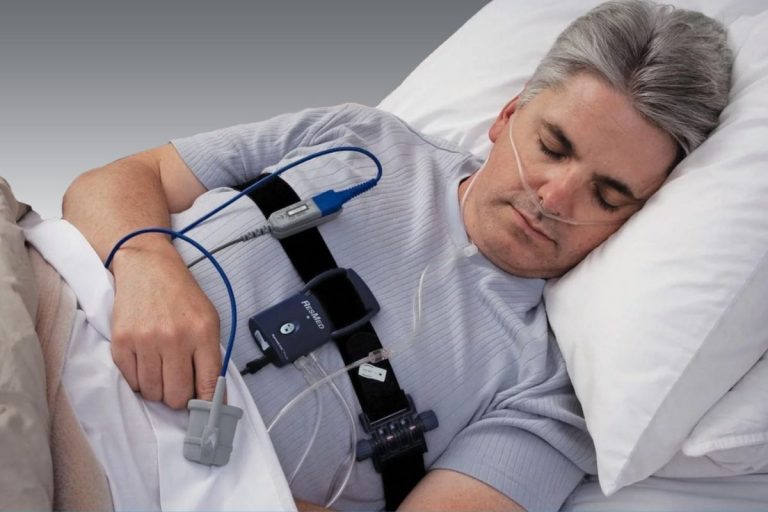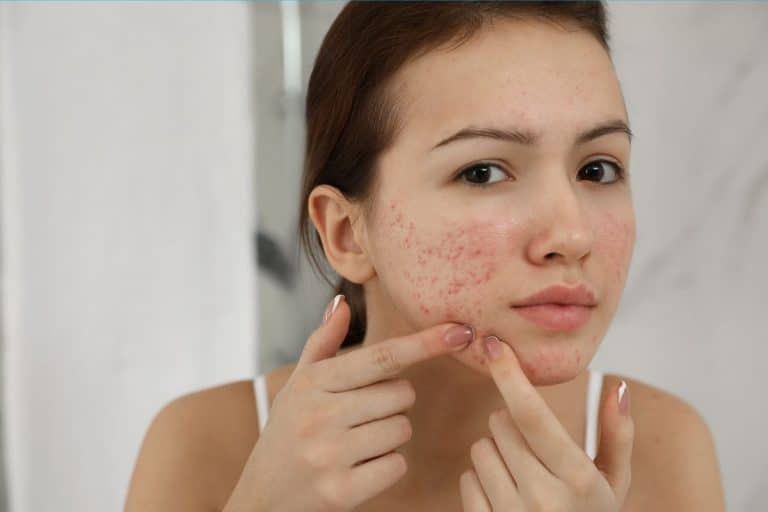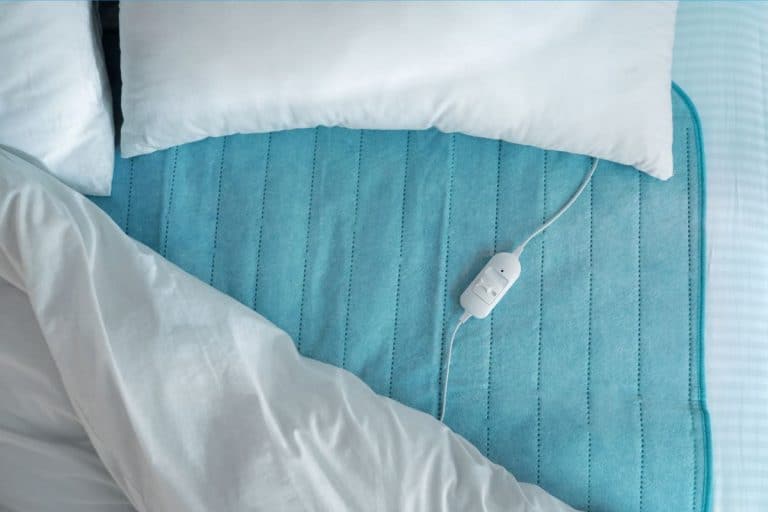How many times have our grandmas told us to not go around with wet hair? They thought it was dangerous for our health. And what did we think about it? We found their fears ludicrous. Viruses don’t care about our hair state. Plus, kids are reckless like that.
And yet, grandmas weren’t entirely wrong. Yes, you can’t catch a cold because of wet hair, but there are other potential issues that arise because of the dampness.
Examples of such issues are fungal infections and hair breakage. You risk negating your efforts in hair care routine by sleeping with wet hair.
In this article, we’ll try to answer whether you should sleep with wet hair. We will also talk about what can happen if you decide that sleeping with a wet head is your thing.
And finally, we’ll mention some tips on how to make sure there are no issues after your shower time ends and before going to bed begins.
Why It’s Bad to Sleep with Wet Hair
Sleeping with wet hair causes many issues. If you’re someone who cares about their hair, you’ll find that wet hair is very ductile and easy to style. But that’s also true while you sleep.
When you go to bed with wet hair, your movements and the pillow will do the styling for you, with varying results.
Some people say that wetting your head before going to sleep helps them get rid of dandruff overnight. But there are other ways to fight flaky skin (for example, coconut oil).
And, of course, don’t forget about common sense – if your head is constantly cold during your nighttime hours, there are more serious health issues that can be triggered by sleeping with a wet head.
Viruses thrive in cold environments. You don’t want to give them any more reasons to annoy you than they already have.
Common Signs That Your Hair Has Been Damaged by Sleeping with a Wet Head
Split ends are the most common sign that you’ve experienced some kind of damage during sleep time, but there are many other ways to spot an issue before it happens. For example, when your hair looks more dull or greasy than usual.
If your hair seems darker than usual, you might have a case of dandruff. Or, if you notice your locks are constantly tangled and dry-looking – it’s important to pay attention to them right away because this could be the beginning of even more serious problems.
If your scalp is cold during the night, you are putting too much stress on it by having wet hair for a long time. Before going to sleep after showering, use some final touches, but remember that less is better in this case – just dry off any excess water and then go to bed.
It’s a nice thought to go around having no issues because of your hair state, but it doesn’t work that way most of the time – especially when you’re talking about sleeping hours.
Editor’s note: If any of the above conditions happen to you, assess their causes immediately.
Sleeping with Wet Hair: The Risks
There are many risks associated with sleeping with wet hair. Going to bed without drying your hair will cause some—if not all—of these issues in the long run. If you do it once, you probably won’t have any issue, but it’s still worth taking steps to lessen its impact.
Naturally, the best option is to dry your hair for 5 minutes before going to bed.
This will help the cuticles of your hair (the scales that cover them) close up and ensure less water gets inside them during the night. It’s not advisable to do this every day, as it can damage your strands if done too often.
1. Risk of Fungal Infection
Ringworm, athlete’s foot, and other similar infections are more likely to occur in people who sleep with wet hair or clothes. Wet clothes can carry the fungi that cause the infections. Your wet hair is also a host for the fungi, since moisture creates an environment for them to grow in.
A second reason sleeping with wet clothes on may be problematic is because of skin irritation. Wearing moisture-laden clothes too often can lead to skin irritation, which can make for sleepless nights because of itchiness or pain from the irritation.
Sleeping with wet hair can lead to the same type of skin irritation. It’s not that you’ll wake up in pain, but your scalp may feel tender or itchy.
2. Hair breakage
Wet hair is more vulnerable than dry hair because the strands are softer and weaker when they’re wet. That’s why it takes less effort from you or your brush to cause damage that leads to split ends and frizzy strands.
This makes wet hair a great ally while styling them, but a nightmare any other time.
3. Hair Loss
This is probably the worst thing that can happen to your hair because it takes much time and effort for you to regrow lost strands. If you wear a wet head or loose braids too often, they will eventually loosen from your scalp because of friction between the ends of one strand and another. You may experience hair loss because of breakage.
4. Hair color fading
The sun, water and chlorine in the pool are the most common reasons your hair color fades. Even though they aren’t that bad for maintaining a healthy head of hair, they can definitely damage dyed locks if you expose them too often. So, whether you’re swimming for fun or exercising at the pool, protect your locks with an elastic headband and a swimming cap if you can.
5. It’s Bad for Your Scalp’s Skin
As we already mentioned above, wet hair can quickly lead to dandruff or other types of skin irritation that lead to itchiness and discomfort during sleep hours. This causes the skin on your scalp to dry out and lose its natural protective layer, which can lead to other issues such as flaking or even fungal infections.
6. It’s Uncomfortable
Wet hair makes it hard for our body to regulate its temperature during sleep. Plus, if your room is cold, you’ll feel as if your head is attracting all of it. This will either make it really hard to fall asleep, or wake you up at night.
If you are used to sleeping with wet hair, and have issues sleeping well, your hair might be the cause.
7. Your Hair Will Look Funny in the Morning
Since we move a lot during sleep, and wet hair is far more malleable than dry hair, you’ll find yourself with a hairstyle rivaling that of Einstein. But then, since your hair will have dried up by morning, you’ll spend a lot of time to get your hair back in order.
If you have long hair and fancy a particular hairstyle, going to bed with wet hair will destroy your chances of keeping it intact. Doing your hair every morning isn’t fun. Not for most people, at least.
Read More:
8. You Will Ruin Your Pillow
Your hair gets saturated with water when you shower in the morning. If it stays wet all day long, this moisture will seep into your pillow and stay there. This can lead to several problems, from mild discomfort when you sleep on it at night to actual mold growth if the pillow cover is made of synthetic material that keeps moisture easily.
9. It Wastes Water
Some people who live in areas where water supply isn’t guaranteed or stable may see this as an issue. If you wear a wet head or loose braids often, you’re wasting water that can be used for other purposes.
Even if you live in an area rich in water, it’s better to save it. Water is a finite resource, and we don’t want to waste it. You’ll save money too.
10. If You Have Naturally Oily Skin, Sleeping with Wet Hair Will Only Make It Worse
The scalp sweats when the head is covered in moisture and doesn’t dry out because of the layer of water on top. This leads to greasier strands that are harder for your shampoo to tackle during wash time.
Do This If You Absolutely Must Sleep with Wet Hair
We don’t always have the luxury of having access to a hair-dryer. Maybe your home is out of electricity for the night. Or perhaps your dryer just broke down.
Whatever the case, here are some ideas that will minimize the risks of sleeping with dry hair.
- Put your hair up in a bun or pigtails
This is the easiest way to keep wet strands out of your face and body while you sleep. You can use elastics that don’t leave too many marks on your skin, such as silk ones, to tie back all of your damp locks. The downside of? this option is that you’ll have to sleep with your hair up every night since it’s not comfortable enough to wear down.
- Apply moisturizing lotion
Look for lotions that are specially made to moisturize your scalp, such as coconut oil or shea butter. These oils will help the skin absorb more water and stay hydrated throughout the night. The downside of this option is that it can make your hair look greasy if you don’t wash it out in time before going to work.
- Cover Your Hair when You Go to Bed
This is a good option if you can’t stand having your hair in a bun or pigtails. A silk or satin cap will make the strands feel softer and more comfortable on your head, while also preventing them from tangling with one another during sleep. You’ll wake up to less frizziness and breakage.
Alternatively, you wear an old t-shirt that you don’t mind ruining. Don’t go overboard and try not to use heating appliances before going to bed, as they dry your hair even more than usual and can cause other issues (for example, frizzy hair or split ends).
- Use scented dry shampoo
You can put dry shampoo on your hair before you go to bed so that the product will absorb any excess oil overnight, leaving your scalp feeling fresh in the morning. This is a good option if you have fine strands since they don’t hold up well with other products and styles that require effort to maintain.
- Use a Silk Pillowcase
This is a good option if you want to go easy on your hair but still get the benefits of sleeping with wet strands. A silk pillowcase won’t make your head sweat as much and will prevent frizziness, which can be caused by microorganisms that thrive in moist environments.
Cotton pillows won’t treat your hair well. They are also known for trapping dirt and dust mites, which can cause an itchy scalp.
Conclusions
Going to bed with wet hair is a health hazard. Not only it damages your hair, causing them to break—and eventually fall, it also weakens your immune system. Plus, it turns your head into breeding ground for fungi and viruses. These bacteria and viruses will attack your immune system, weakening it.
It’s important to dry your hair before sleep. If you can’t, there are other ways to prevent your condition from damaging them.
With the right products, and the knowledge from this article, you can save your hair from breaking down. Even if you go to bed with wet hair. Although you should avoid it whenever possible.





